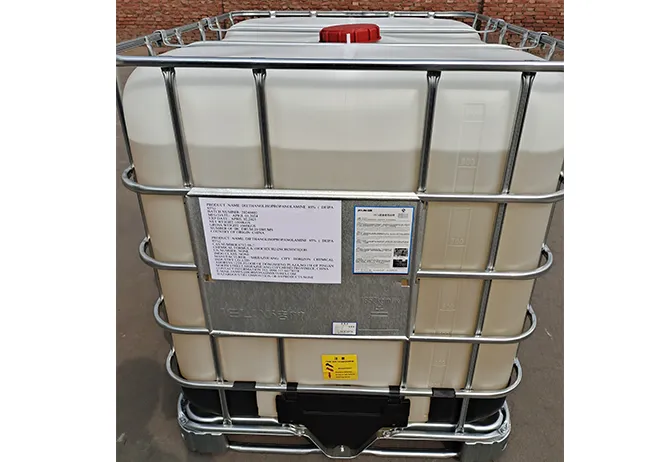
iron fertilizer
The Role of Iron Fertilizer in Agriculture
Iron is an essential micronutrient that plays a critical role in plant growth and development. While it is required in smaller quantities compared to macronutrients such as nitrogen, phosphorus, and potassium, iron deficiency can significantly impact agricultural productivity. This is where iron fertilizers come into play, providing a necessary supplement for crops to thrive.
Understanding Iron Deficiency
Plants require iron for several key processes, including chlorophyll synthesis, photosynthesis, and enzyme function. Iron deficiency can lead to chlorosis, a condition characterized by yellowing of leaf tissue while the veins remain green. This chlorosis typically starts on young leaves and can progress to stunted growth, reduced yield, and even plant death if not addressed. Conditions like high soil pH, waterlogged soils, and the presence of other nutrients can exacerbate iron deficiency, making it a common issue in many agricultural systems.
Types of Iron Fertilizers
Iron fertilizers come in various forms, each with its specific use and effectiveness. The most commonly used types include
1. Ferric Sulfate (Fe2(SO4)3) This type of iron fertilizer is effective in alleviating iron deficiency, particularly in alkaline soils where iron is not readily available to plants.
2. Ferrous Sulfate (FeSO4) Often used for both soil amendment and foliar application, ferrous sulfate is soluble and quickly available to plants. It is frequently used in acidic soils where higher solubility aids iron uptake.
3. Chelated Iron Chelated forms of iron, such as EDTA and EDDHA, are designed to remain soluble across a broader pH range. This makes them particularly useful in high pH soils, where unchelated iron rapidly becomes unavailable to plants.
iron fertilizer

Application Methods
Application methods for iron fertilizers vary based on the type of fertilizer used and the specific needs of the crops. Soil application can be done before planting or as a top-dressing during the growing season. Foliar application, on the other hand, is often preferred for immediate correction of deficiency symptoms, as leaves can absorb the nutrients directly. Understanding the timing and method of application is crucial for maximizing the effectiveness of iron fertilizers.
Environmental Considerations
While iron fertilizers are beneficial for plant health, their use must be managed carefully to avoid potential environmental issues. Excessive application can lead to soil and water contamination, especially in sensitive ecosystems. Iron can also react with other nutrients, potentially leading to imbalances that affect plant health. Therefore, conducting soil tests and following recommended application rates are essential practices for sustainable use.
Economic Impact
The use of iron fertilizers can lead to significant economic benefits for farmers. By ensuring adequate iron levels in crops, farmers can enhance yield qualities and quantity, leading to better market prices. Furthermore, crops with sufficient iron content tend to be more resilient to diseases and environmental stressors, translating into reduced losses and increased profitability. As global populations rise and demand for food increases, the role of iron fertilizers becomes increasingly vital in ensuring food security.
Conclusion
Iron fertilizers are indispensable tools in modern agriculture, aiding in the prevention and correction of iron deficiency in crops. By enhancing plant health and improving yields, these fertilizers contribute significantly to agricultural productivity. However, their use must be balanced with environmental sustainability practices and economic viability. As the agricultural landscape evolves, ongoing research into more efficient and eco-friendly forms of iron fertilizers will be essential in meeting the food demands of the future while protecting our planet’s resources. In conclusion, iron fertilizers hold the key to unlocking the full potential of crop yields while promoting sustainable farming practices, thus playing a pivotal role in the agricultural sector.
-
Pure Sodium Dichloroisocyanurate Dihydrate | Powerful DisinfectantNewsAug.29,2025
-
Industrial Chemicals: Quality & Purity for Every IndustryNewsAug.28,2025
-
Nitrile Rubber Honoring Strict Production StandardsNewsAug.22,2025
-
Aspartame Ingredients Honoring Food Safety ValuesNewsAug.22,2025
-
Fertilizer for Balanced Plant NutritionNewsAug.22,2025
-
Cyanide Gold Processing with High Purity AdditivesNewsAug.22,2025
-
Formic Acid in Textile Dyeing ApplicationsNewsAug.22,2025
Hebei Tenger Chemical Technology Co., Ltd. focuses on the chemical industry and is committed to the export service of chemical raw materials.
-

view more DiethanolisopropanolamineIn the ever-growing field of chemical solutions, diethanolisopropanolamine (DEIPA) stands out as a versatile and important compound. Due to its unique chemical structure and properties, DEIPA is of interest to various industries including construction, personal care, and agriculture. -

view more TriisopropanolamineTriisopropanolamine (TIPA) alkanol amine substance, is a kind of alcohol amine compound with amino and alcohol hydroxyl, and because of its molecules contains both amino and hydroxyl. -

view more Tetramethyl Thiuram DisulfideTetramethyl thiuram disulfide, also known as TMTD, is a white to light-yellow powder with a distinct sulfur-like odor. It is soluble in organic solvents such as benzene, acetone, and ethyl acetate, making it highly versatile for use in different formulations. TMTD is known for its excellent vulcanization acceleration properties, which makes it a key ingredient in the production of rubber products. Additionally, it acts as an effective fungicide and bactericide, making it valuable in agricultural applications. Its high purity and stability ensure consistent performance, making it a preferred choice for manufacturers across various industries.





